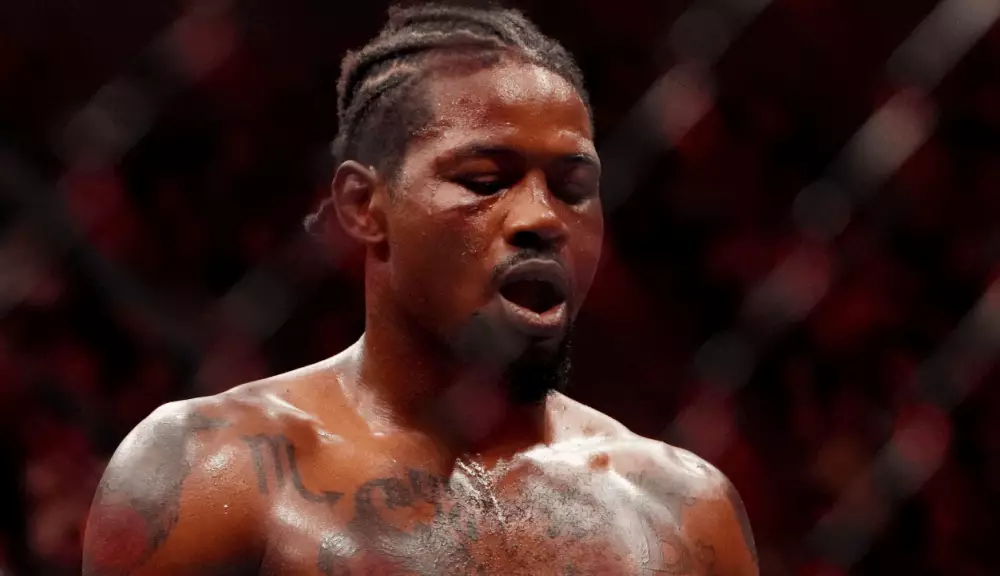Kevin Holland, a prominent fighter in the UFC, has faced the harsh realities of competition head-on, especially following his recent bout at UFC 307. Defeated by TKO due to an injury, the emotional toll this loss has taken on Holland is palpable. He expressed his sentiments powerfully through social media, posting a screenshot of a hurtful message he received from a disgruntled fan. This interaction underscores the weight that public perception carries in combat sports. “Can’t have a response to everyone but yeah, I feel like a total piece of sh*t,” Holland candidly stated. This admission reveals not only a personal struggle but also the immense pressure fighters feel to perform for their supporters.
A Painful Turn of Events
In the fight against Roman Dolidze, Holland was not just battling his opponent but was also waging a war within as he suffered a suspected rib injury during a grappling exchange in the first round. Although he soldiered through to the end of the round, it was evident that he was in discomfort as he made his way back to his corner. The critical decision ultimately rested with his coach, Bob Perez, who prioritized his athlete’s health over the fight’s outcome. This decision, although difficult, highlights the crucial role of a coach in the fight game. “We took the L last night,” Perez reflected on social media, shedding light on the injury and the rationale behind stopping the fight. Such decisions are not made lightly, and Perez’s experience as a trainer shines through as he balances the fighter’s aspirations with their safety.
Understanding Fighter Psychology
Holland’s post-fight reaction showcases the psychological complexities inherent in mixed martial arts. The emotional weight of disappointing fans and supporters adds another layer of pressure to a fighter’s performance. Holland’s self-deprecating comment—“Ima p*ssy”—reveals his frustration and disappointment in his ability to showcase his skills effectively. It also highlights a broader issue within sports; athletes often grapple with their identities and how they believe they are perceived by the public. The fear of letting down fans can weigh heavily on combatants, complicating their mental state during and after fights.
While the physical toll of fighting is visible, the unseen struggles with injury and recovery can be just as impactful. Following his defeat, Holland was seen in pain, and it is unclear how long he will need to recover from his injuries. This narrative is not uncommon in MMA; injuries often underline the fragility of an athlete’s career. Holland’s history of injuries, including a significant hand injury from a previous fight, portrays the constant battle fighters endure. Beyond the arena, they deal with the implications of health and performance, which can lead to further psychological and physical challenges.
As Holland contemplates this setback, he must find a way to harness the lessons learned from UFC 307 and incorporate them into his training and mindset. The MMA community often rallies around fighters in such times, reminding them that setbacks are a part of the journey. Holland’s resilience will undoubtedly be tested, but history shows that many fighters emerge stronger from adversity. His journey reflects the spirit of competition, where every loss carries the potential for growth, both inside and outside the octagon.

